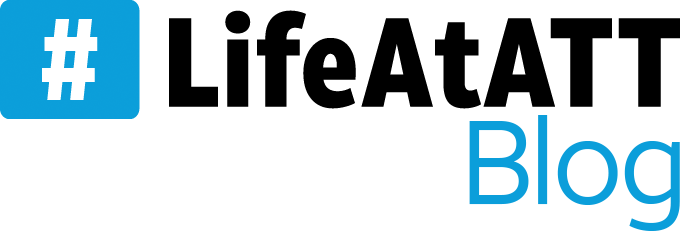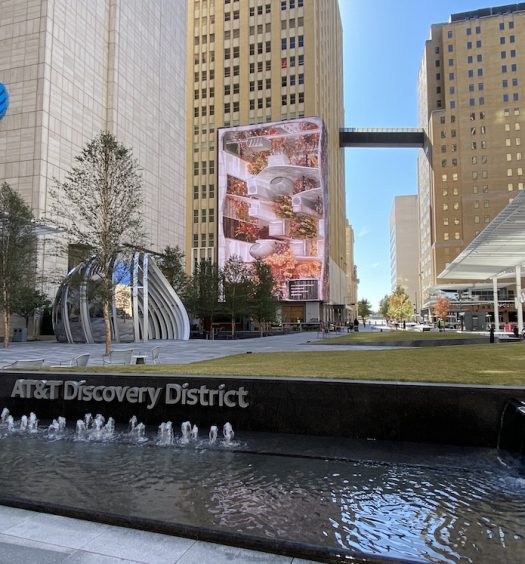A job interview is be equal parts exciting and nerve-racking. You’ve done your research to find the right fit for you and your career goals, submitted your application, and been invited to interview for the role. Wondering how to prepare? Current and former leaders from our Talent Acquisition team are here to help!
Preparing for the interview

Katherine Rice
The hardest part of the interview is often getting ready for it. Maybe you have the pre-interview jitters to work out or are unsure of what you’re getting into. The answer to both scenarios is “do your homework.”
Drawing from years of interview experience, Katherine Rice, Lead Talent Acquisition, offers this advice for those trying to get over pre-interview worries, “Practice speaking about the information on your resume and past experience.” It’s your history, so you should be an expert. Be ready to talk about any and all aspects of your resume and demonstrate how you’re a good fit for the role. Go over your resume again and make sure you can speak to all of it. A good way to do this is use the STAR Method: Situation, Task, Action, Result. Explain the situation, the task you were responsible for, the action you took, and the result achieved.
Nicholas Garcia, Lead Consultant Communications, adds, “Research the company, the program you’re applying to, and have a few questions prepared.” You’re not expected to be an expert here, but you should indicate you have an idea of what you’re getting it. Visit the company site and read-up on the culture, the program requirements, and take note of any questions you have about it.
Having the interview

Steve Harris, Jr.
Now that you’re studied up and your interview date has arrived, here are some tips for making sure it goes off without a hitch.
Our leaders all agree that technical issues are one of the biggest things that trip up candidates. Lead Marketing Manager Steve Harris, Jr. suggests, “Sign into the interview 5-10 minutes ahead of the scheduled time.” This will allow you to check that your audio, video, and internet connection are working properly and troubleshoot if they aren’t. Even more important when handling a tech issue: stay calm. Interviewers are people and understand these things happen. Communicate openly and do your best to find a solution.
In addition to avoiding tech issues, you want to make sure you are in an appropriate environment. Garcia says, “Avoid having a distracting video background and background noise.” Find a quiet, unoccupied room with a door, if possible, to be sure there’s as little external noise as possible. Open windows or loud air conditioning are other potential distractions. For your background, make sure you have a clean, business-like background behind you. Avoid messy or cluttered areas or a lot of wall art. Background blur on many video call platforms can help too.
Harris, Jr. adds, “Dress appropriately for the interview and have your camera on.” You may not be in an office, but it is still important to dress as though you were. Business-appropriate attire is essential. And that includes pants! Being dressed-to-impress and on video allows for a more personal, human connection which will help you succeed.
Choosing your interview questions

Nicholas Garcia
You’ve talked about your experience and now the interview has opened the floor for your questions. What are the best types of questions to ask?
Rice says, “ask qualifying questions that are important to you when thinking about the type of place you want to work. For example, ‘Can you describe the company culture?’” This is a great place to demonstrate your research, by asking about specific aspects of the company culture and values.
Garcia suggests similar questions like, “How long have you worked at AT&T and why do you like it?” or “Based on my resume, what challenges do you think I’ll have going into this role?”
Questions like these both demonstrate your thoughtfulness and level of research into the position as well as helps you get a better understanding of what’s expected. The questions you ask do leave an impression of the type of employee you’ll be, but most importantly will help you gain all the information you need to know if a role is right for you.
Your questions can be about whatever you think is important in making your decision. The most essential thing is that you ask any questions at all.
Leaving a lasting impression
Looking for that little boost to push your interview over-the-edge? We also asked how candidates can make themselves standout.
Rice says it’s building a good rapport. “It’s always a great interview when it feels more like a conversation and the candidate asks good questions.”
Garcia echoes that saying, “A candidate’s high energy personality or out-of-the-ordinary experience always leaves a good impression.” Remember that “high energy” and overwhelming aren’t the same thing. It’s good to be passionate… just do it with your inside voice.
Make sure to be yourself, engage with your interviewer, and demonstrate how you’re the right fit for the role and you’ll be well on your way to a memorable interview.
Following up
You’ve nailed your interview and you’re feeling good, but you’re not sure about what comes next. The entire process from application to offer is typically 4-6 weeks depending on the program. Some of the more intricate programs can take a bit longer.
Your interviewer will give you an idea of a timeline and next steps and you can always ask for any clarification during the interview if you need it. Typically, it will be 1-2 weeks to find out if you made it to the next round of interviews or are getting an offer.
In the interim, you can always check the status of your application on the AT&T jobs portal or reach out to your recruiters via email or LinkedIn. When is it necessary to reach out? Usually after a week since the last communication.
With this guide, you’re all set for nailing your interview. If you haven’t applied yet…
Find the Opportunity that’s Right for You



